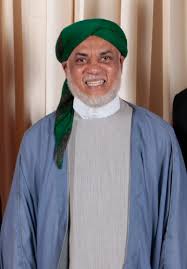 Introduction
Introduction
In the Indian Ocean archipelago of the Comoros, few figures have left as profound an impact as Ahmed Abdallah Mohamed Sambi. Serving as the nation’s president from 2006 to 2011, Sambi’s tenure was marked by significant political developments and controversies. This blog post delves into his early life, political career, financial dealings, and the legal challenges he faced, providing a comprehensive overview of his influence and legacy.Encyclopedia Britannica+3Wikimedia Commons+3Wikipedia+3
Early Life and Education
Born on June 5, 1958, in Mutsamudu on the island of Anjouan, Comoros, Sambi hailed from a family with deep Islamic roots. His early education was steeped in Islamic studies, which later influenced his political ideology. He pursued higher education abroad, focusing on Islamic law and theology, which earned him the nickname “Ayatollah” among his supporters. This religious background played a pivotal role in shaping his political persona and policies during his presidency.Wikipedia+6Wikimedia Commons+6Encyclopedia Britannica+6
Political Ascendancy
Sambi’s political journey began in the 1990s when he became involved in Comoros’ political landscape. His rise to prominence culminated in the 2006 presidential elections, where he secured a decisive victory with 58.02% of the vote.His presidency was characterized by efforts to stabilize the nation, promote national unity, and enhance international relations. Notably, he sought to strengthen ties with Gulf nations, leveraging his religious connections to attract investment and support.Wikipedia
Economic Citizenship Program
One of the most controversial aspects of Sambi’s presidency was the introduction of the “economic citizenship” program in 2008. This initiative allowed stateless individuals from the Gulf region, particularly the Bidoon community, to acquire Comorian passports in exchange for substantial fees. While the program aimed to generate revenue for the nation, it faced criticism for lacking transparency and potentially compromising the country’s sovereignty. The program’s implementation and its oversight became central to the legal challenges Sambi would later face.Al Jazeera+1CGTN Africa
Financial Interests and Alleged Corruption
During his tenure, Sambi’s administration was closely associated with Comoro Gulf Holdings (CGH), a conglomerate that monopolized several key sectors in the Comoros, including banking, tourism, and media. The company’s extensive influence raised concerns about the concentration of economic power and potential conflicts of interest. Additionally, Sambi’s connections with Gulf investors and businessmen led to allegations of financial improprieties and misuse of public funds.Wikipedia
Legal Challenges and Imprisonment
In 2022, Sambi was arrested and charged with high treason, embezzlement of public funds, and corruption related to the economic citizenship program. Prosecutors alleged that he had betrayed the trust of the Comorian people by facilitating the sale of passports for personal gain. In November 2022, he was sentenced to life imprisonment for his role in the scandal. Sambi has consistently denied the charges, maintaining that the program was intended to benefit the nation and its people.AfricanewsAl Jazeera
Public Perception and Legacy
Sambi’s legacy is a subject of debate within the Comoros and beyond. Supporters view him as a visionary leader who sought to modernize the nation and elevate its status on the international stage. They argue that his policies were aimed at economic development and national unity. Critics, however, contend that his administration was marked by authoritarian tendencies and financial mismanagement. The economic citizenship program remains a focal point of contention, with many questioning its ethical implications and long-term impact on the nation’s integrity.
Conclusion
Ahmed Abdallah Mohamed Sambi’s presidency was a defining period in the history of the Comoros. His efforts to navigate the complex political landscape, attract foreign investment, and promote national unity were significant.However, the controversies surrounding his administration, particularly the economic citizenship program and associated financial dealings, have left a lasting impact on his legacy. As the Comoros continues to evolve, the lessons from Sambi’s tenure serve as a reminder of the delicate balance between governance, ethics, and national interest.
Frequently Asked Questions (FAQs)
-
What is Ahmed Abdallah Mohamed Sambi’s educational background?
Sambi pursued studies in Islamic law and theology abroad, which influenced his political ideology and policies during his presidency.
-
What was the economic citizenship program introduced by Sambi?
Launched in 2008, the program allowed stateless individuals from the Gulf region to acquire Comorian passports in exchange for significant fees, aiming to generate revenue for the nation.
-
What sectors did Comoro Gulf Holdings dominate during Sambi’s presidency?
CGH had a strong presence in banking, tourism, media, and construction, raising concerns about the concentration of economic power.
-
What were the charges against Sambi leading to his imprisonment?
He was charged with high treason, embezzlement of public funds, and corruption related to the economic citizenship program.
-
How do supporters view Sambi’s legacy?
Supporters consider him a visionary leader who sought to modernize the nation and enhance its international standing.
-
What do critics say about Sambi’s administration?
Critics argue that his administration exhibited authoritarian tendencies and financial mismanagement, particularly concerning the economic citizenship program.
-
Has Sambi accepted the charges against him?
No, Sambi has consistently denied the charges, asserting that the economic citizenship program was intended to benefit the nation.
-
What is the status of Sambi’s legal proceedings?
As of the latest reports, Sambi has been sentenced to life imprisonment, though appeals and legal challenges may still be ongoing.
-
What impact did Sambi’s presidency have on the Comoros?
His presidency brought both advancements and controversies, influencing the nation’s political and economic landscape.
-
What lessons can be learned from Sambi’s tenure?
Sambi’s tenure underscores the importance of transparency, ethical governance, and the need for checks and balances in leadership.